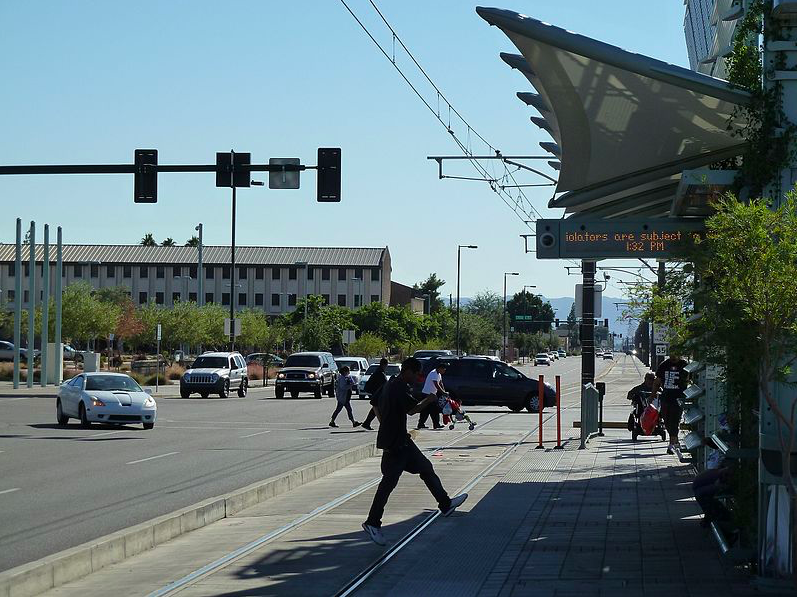For people who walk in Phoenix, life is cheap.
In the first week of March alone, drivers stuck and killed 10 people walking on Phoenix streets. A 2014 complete streets ordinance hasn't made much of an impact in a city that consistently rates as one of the most dangerous places in America for walking. Drivers have killed about 300 pedestrians since the law was passed.
Just this Sunday, two lives were lost. "We just had two more pedestrians die yesterday in Phoenix," said Sean Sweat, who serves on the city's Compete Streets Advisory Board. "It’s constant."
But the city's Street Transportation Department is in no hurry to act. Ever since the ordinance was passed, the agency has delayed accepting new street design guidelines developed by the advisory board, based on best practices from around the country.
In addition to the human toll, the cost of inaction is adding up for the city. Phoenix recently agreed to pay a $2.8 million settlement after a teenage boy was struck by a driver soon after exiting a bus and suffered debilitating injuries. Since there were no crosswalks near the bus stop, the boy had crossed midblock.
The lawsuit accused the city of failing to follow its own pedestrian safety plan. The city argued, in response, that it did not need to provide a crosswalk because it had placed "No Pedestrian Crossing" signs at the location.
Meanwhile, the new complete streets guidelines have languished for years, with city staff refusing to bring them to the City Council for a vote. Drafted by members of the advisory board at the request of City Hall, the guidelines are hardly radical. They state, for example, that streets should be designed so as not to promote speeding and be well lit. They also recommend bike lanes on streets that are not residential or industrial.
Sweat and his colleagues on the advisory board have run out of patience. Fellow advisory board member Connor Descheemaker recent submitted a "citizen's petition" to bypass the agency and put the guidelines on the City Council's agenda.
"Our hope is that Council will understand that Phoenix needs to adopt these policies in order to improve public safety and overall livability in a place that is becoming ever more unsafe and unlivable," said advisory board member Raymundo Cabrera.
The advisory board does not know how City Council will vote. But Sweat, Descheemaker, Cabrera, and other volunteers who worked on the guidelines feel like they deserve a vote.
The need for change was underscored by Arizona's recent ranking as the most dangerous state in the nation for walking. Sweat says there's simply a lack of empathy for the people at risk in Phoenix. Many higher-income people make all their trips by driving.
"These people that die on the streets, they tend to be poorer," he said. "All that kinds of feeds into itself, creates this level of apathy."






